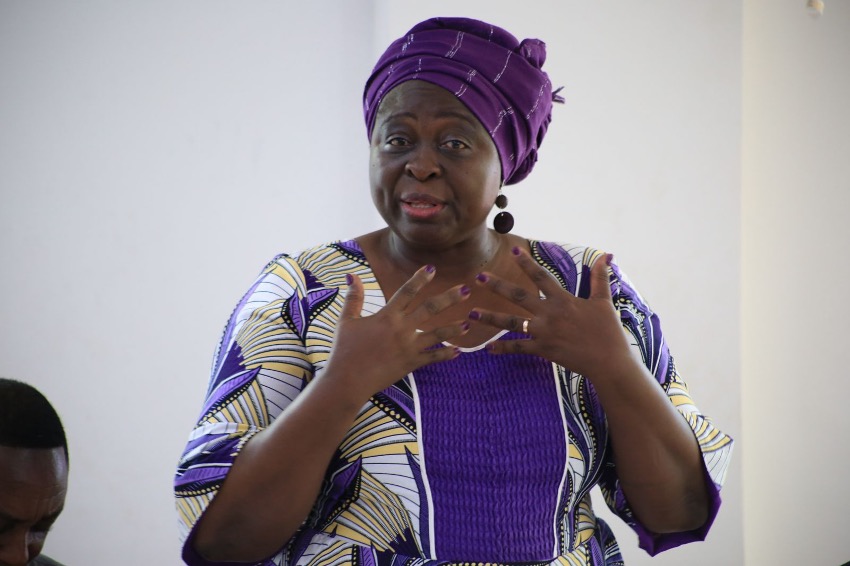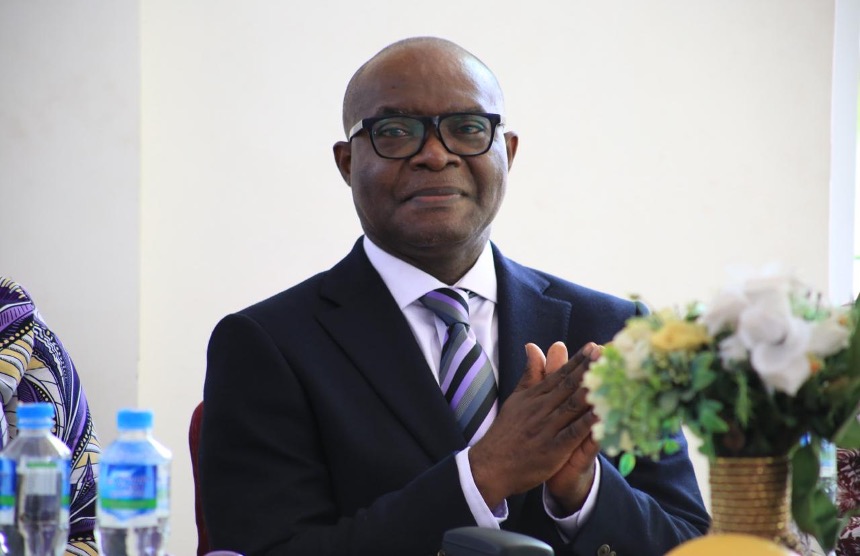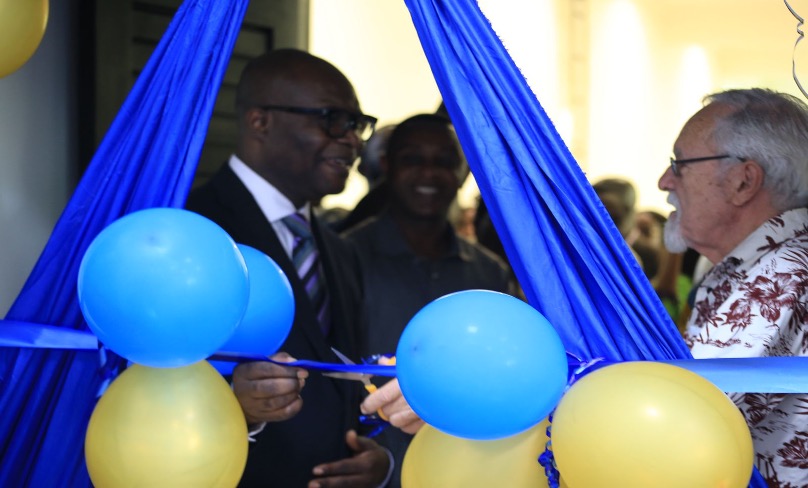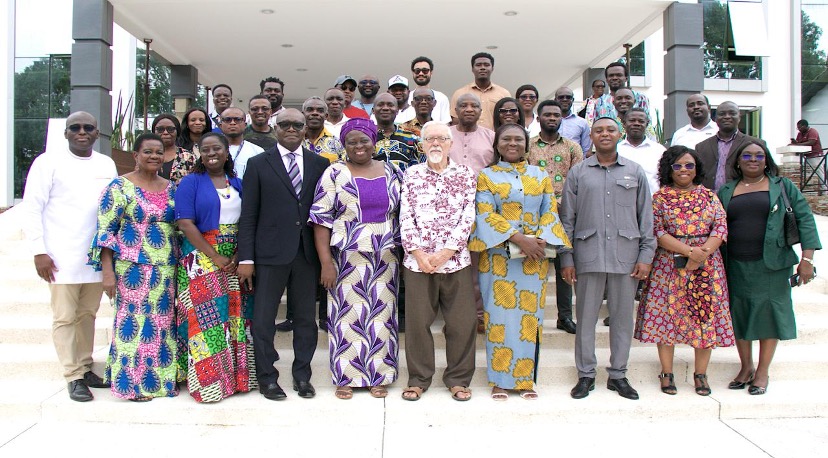On Tuesday, July 23rd, 2024, a significant milestone in cultural sustainability was achieved with the official launch of a Highlife Music Archive by the Department of Music, School of Performing Arts, College of Humanities (CoH), University of Ghana, Legon. The archive is the first of its kind in any academic institution in Ghana and other parts of the West African subregion where highlife music is also popular.
Housed on the 3rd floor of the Kojo Senanu Arts and Languages Building, CoH, materials for the archive was generously donated by Edmond John Collins and the family of Ernest Owusu-Poku. John Collins, as he is popularly referred to, is a musician, highlife music scholar and Professor of Music at UG. He has been actively involved in the Ghanaian and African popular music scenes as a musician, studio owner, music journalist, music historian, activist, teacher and researcher for over six decades. Beyond active involvement, he also made enormous efforts to document and preserve this intangible cultural heritage at his Bookor House along the Nsawam-Kumasi Road. Funding for the equipment and infrastructure for the archive came through an Andrew Melon Humanities Engage grant of Five thousand dollars $(5000) secured by an alumnus of the Department of Music, Mr. Ernest Owusu-Poku. Ernest, a former student of Professor John Collins and a popular music researcher himself, is currently a PhD student at the University of Pittsburgh in the United States of America.
Among those present at this august occasion were the Provost, College of Humanities, Professor Daniel Frimpong Ofori, the Acting Dean, School of Performing Arts, Prof. Awo Mana Asiedu, Head of Department of Music, Dr. Adwoa Arhine and Head of Department of Dance Studies, Dr Jennis Darko. Others include Professor John Collins, Mr. Carl Ampah, National Programme Officer (Culture), UNESCO in Ghana, Executive Director of the National Folklore Board Mrs. Bernice Deh-Kumah, Mrs. Judith Opoku Boateng, Principal Archivist of the Prof. J.H.K Kwabena Nketia Archive, faculty, students and friends of the School of Performing Arts, lovers of highlife music and the media.
In her welcome address, the Head of Department of Music stressed that Highlife music is a national treasure that extends beyond the music department as it reflects Ghanaian politics, social lives, economics and history, and that the archive will serve as a hub for multilayered resources, fostering research and collaboration across various disciplines. It is important to stress here that the process of listing Highlife music as an Intangible Cultural Heritage (ICH) is currently under consideration by UNESCO and is approaching the closing stages. Both Mr. Carl Ampah and Mrs. Bernice Deh-Kumah, who spoke at the event, expressed great joy with this initiative, which, according to them, will create further justification for UNESCO listing and possibly fast-track the process. Mrs Judith Opoku-Boateng, underscored the need for the Highlife Music Archive to collaborate with other music archives within and outside Ghana to enhance its visibility and sustainability. Mr Ernest Owusu-Poku, who participated via Zoom, provided an overview of the initiative, indicating that his motivation for the project is to contribute to the revival, study, and preservation of Ghanaian Highlife Music.

For her part the Ag. Dean of the School of Performing Arts expressed her appreciation for the project and expressed the hope that the College of Humanities will provide the necessary staffing for the archive.
In his address, the Provost, serving as the Special Guest of Honour, expressed gratitude to Professor Collins and Ernest Owusu-Poku's family for their contributions to the archive. He anticipated that these resources would significantly benefit the university's educational and research endeavours. The archive was officially inaugurated, with guests invited to explore its extensive digital and analogue resources.

Prof. Daniel Ofori, Provost, College of Humanities

Prof. Dan Ofori assisting Prof. John Collins (Right) to cut the ribbon.
